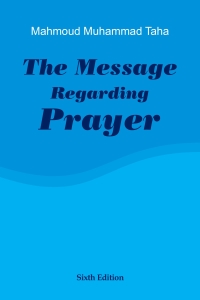Contentment with Allah as Servitude
We have established that prayer is a means, as demonstrated by the preceding verses. It has become clear that it is a means to remember Allah, and we have defined the remembrance of Allah as being present with Him without any lapse of awareness. The fruit of such uninterrupted remembrance is complete knowledge of Allah. The fruit of complete knowledge is contentment with Allah, while the consequence of heedlessness of Allah is dissatisfaction with Him. The most subtle manifestation of dissatisfaction with Allah is wishing for things, which the Qur’anic verse prohibited the Prophet from doing.
Contentment with Allah represents striving in the station of servitude. A servant continues to struggle against the inclinations of their nature that drive them toward dissatisfaction with Allah and lack of contentment in every subtle aspect of conduct. This striving persists until Allah is pleased with them, at which point they transition from the state of the contented self (al-nafs al-rādiyah) to the state of the pleasing self (al-nafs al-marḍiyyah), which is a self to which Allah grants only what it desires.
In truth, the self cannot be entirely content with Allah while receiving from Him what it dislikes. Therefore, Allah describes the condition of those who are pleasing to Him as follows: “They will have whatever they wish therein, and with Us is more” (50:35).
Since a human being does not wish for what they dislike and does not desire that they will be unfulfilled, Allah ensures the realization of their desires. This is indicated by the phrase “They will have whatever they wish therein.” Moreover, because they have become pleasing to Allah through their enduring contentment with Him, Allah continually grants them new knowledge of Himself. Through this, their wishes are renewed, ascending to ever loftier demands that are fulfilled immediately upon their emergence, whether in thought or speech. This is alluded to in the phrase “and with Us is more.”
If the servant excels in employing prayer as a means, it aids them in entering the station of contentment with Allah. By excelling in conduct through further mastery of prayer, they progress into the degrees of servitude.
The station of servitude has a beginning, which is the station of the contented self, but it has no end, as it is infinite like Lordship itself. Servitude (ʿubūdiyyah) is the original obligation, while worship (ʿibādah) is the subsidiary obligation. More precisely, worship is the means, and servitude is the goal of worship.
This is what is conveyed by the verse: “And I did not create the jinn and mankind except to worship Me” (51:56).
Its meaning is: "I did not create the jinn and mankind except for them to become My servants through the means of worship." Or, in other words, "I did not create the jinn and mankind except to worship Me as I commanded them through the tongues of My messengers, so that through such worship they might become My servants, as I commanded them through the tongue of My Essence," as expressed in His majestic statement: “There is none in the heavens and earth but that they come to the Most Merciful as a servant. He has enumerated them and counted them precisely. And all of them will come to Him on the Day of Resurrection, alone” (19:93–95).

